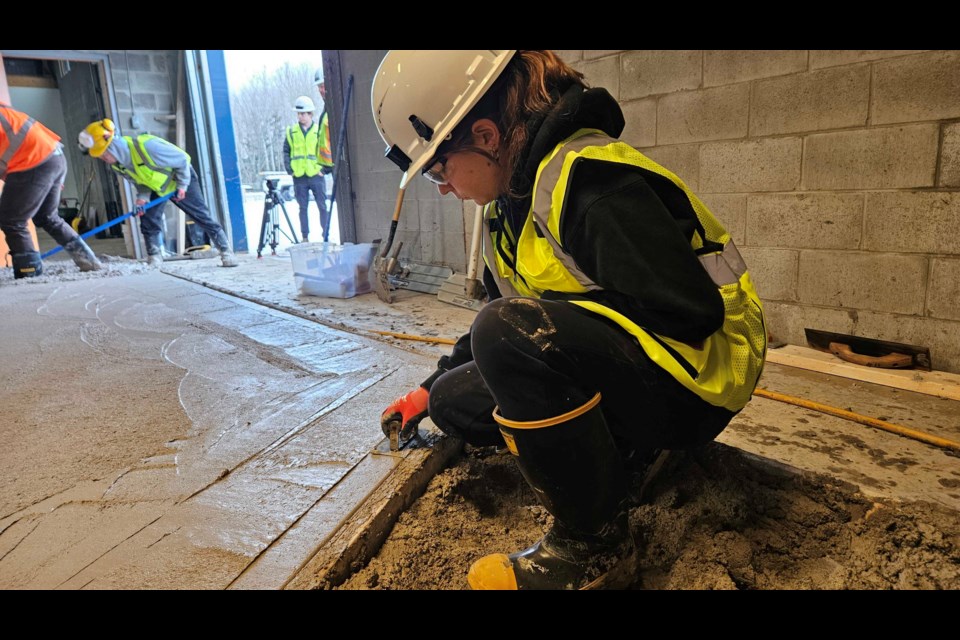THUNDER BAY — Having the right set of tools at a student's disposal is a major factor when training in the trades.
As a training space for apprentices, LIUNA Local 607 is investing in the future of tradespeople by upgrading its tools and materials, both literally and figuratively.
Previously, apprentices learning about cement finishing could only train using regular cement products but had to work quickly because of how fast the cement would start setting, says Andy Nieweglowski, director of training at the Labourers’ International Union of North America Local 607.
"We've got a product made of natural soil, sand and then aggregate. And together with water, it takes about three weeks for it to dry up. So we take that three hours and increase our training time into 120 hours, and we're doing it over and over and over again. It's going to be a lot better for the trainee."
Nieweglowski said this will give local apprentices an advantage in future job prospects.
"Employers are asking us, 'What are you bringing? We're a little bit iffy that they don't have a lot of experience.' We're going to be taking that into another realm for them. We'll be able to bring you an apprentice that can participate right off the bat. They'll hit the ground running."
Since the new product is water soluble, it's perfect to be recycled and used for the next batch of trainees, making it highly cost-efficient.
"We buy it once, and we don't have to buy it again because after it dries we smash it up, add some water, mix it up and do it all over again," Nieweglowski said.
"This training will go 365 days a year. It will always be ready."
After training with the new product, apprentice Preston Koivu said this will help him be better prepared when job opportunities come up.
"The more practice that we have, the better off we're going to be. A lot of times, maybe students wouldn't have this because we have to use concrete, and that's a lot of waste. That would take up a lot of resources."
There have also been additions of new powered equipment that will help lower carbon monoxide exposure.
New battery-powered tools have been brought into the training centre that are quieter and don't require fuel. Not only do the tools take away the risk of direct carbon monoxide exposure, but students can use them indoors in a more controlled setting.
All of these changes for LiUNA Local 607 will assist in better-trained apprentices, more cost-efficient practices and a reduced carbon footprint.
